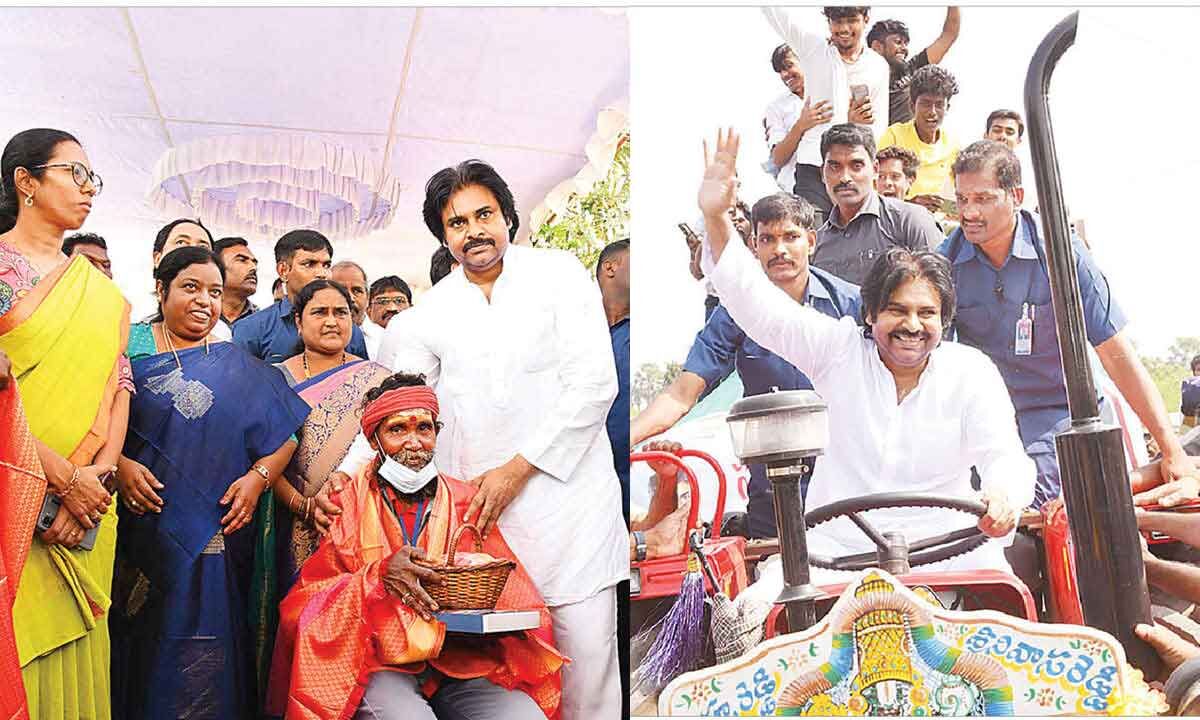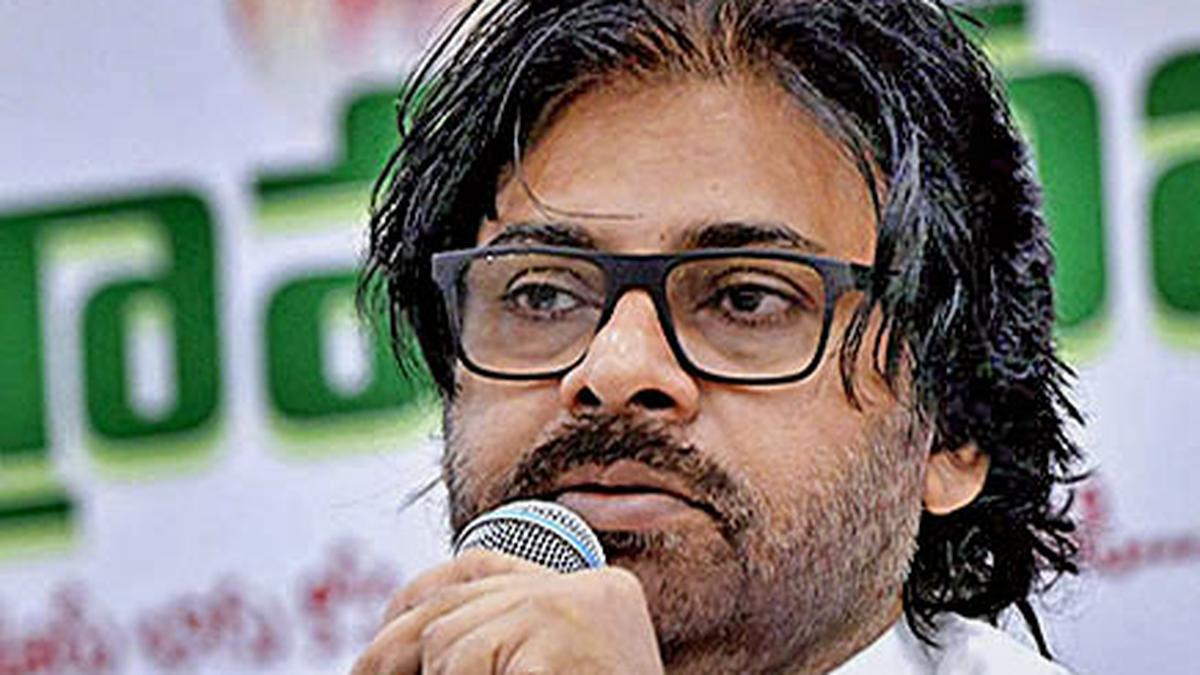When you think of public figures making a lasting impact, Pawan Kalyan stands out as a champion for social awareness and community action. His recent attendance at the Swachh Andhra-Swachh Divas program not only underscored his commitment to cleanliness but also provided a unique opportunity to engage the public in vital waste management initiatives. Imagine a vibrant community where every citizen takes pride in their surroundings—a vision Kalyan is working to realize!
Highlighting Pawan Kalyan’s Engagement
Involvement in Swachh Andhra-Swachh Divas Program
Pawan Kalyan, the Deputy Chief Minister, recently took part in the Swachh Andhra-Swachh Divas program held in Namburu, Guntur district. This initiative is part of a broader effort led by Chief Minister N. Chandrababu Naidu to promote cleanliness across the state. Each third Saturday of the month is designated as Swachh Andhra day. This program aims to instill a sense of responsibility towards cleanliness in the community.
At this event, Kalyan inspected a garbage processing center. He didn’t just watch; he actively participated by driving a garbage collection vehicle. It was a powerful statement, showing that leaders should lead by example. Why should cleanliness be a mere duty? It should be a way of life. As Kalyan put it,
"Awareness is important—cleanliness is a lifestyle, not just a duty."
Recognition of Sanitary Workers
During the event, Kalyan took time to honor 35 sanitary workers who had bravely served during the devastating floods in Vijayawada. These workers often go unnoticed, yet they play a crucial role in keeping our surroundings clean and safe. Recognizing their efforts is vital. It not only boosts their morale but also highlights the importance of their work in society.
By acknowledging these workers, Kalyan emphasized that cleanliness is not only the responsibility of the government or volunteers. Everyone has a role to play. The community must come together to support these unsung heroes. After all, how often do we think about the people who clean our streets or manage our waste?
Driving a Garbage Collection Vehicle
One of the most impactful moments of the day was when Pawan Kalyan drove a garbage collection vehicle himself. This act was symbolic. It showed that no task is too small for a leader. By getting behind the wheel, he demonstrated a hands-on approach to the cleanliness campaign. It sends a clear message: if leaders are willing to get their hands dirty, then the public should be inspired to follow suit.
Moreover, Kalyan's involvement in driving the vehicle was not just a publicity stunt. It was a call to action. He urged local bodies to adopt systematic waste management practices. This includes separating waste at its source and converting it into compost. Such practices can transform waste into wealth. Isn’t it fascinating how something we consider trash can be turned into something useful?
Notes from the Event
The event was attended by local leaders and officials, including Minister for Civil Supplies, Nadendla Manohar. The presence of these officials underscores the importance of collaboration in achieving cleanliness goals. Kalyan's hands-on approach is a refreshing change. It’s not just about policy-making; it’s about engaging with the community directly.
As he spoke, Kalyan outlined plans for sustainable waste management. He emphasized the need for public participation. He urged citizens to take ownership of cleanliness initiatives. This is crucial because real change happens when the community is involved. The government can set the framework, but the people must embrace it.
He also discussed the importance of managing bio-waste, particularly from hospitals. This is an area that deserves attention. Pollution control and health safety are paramount. Kalyan assured improved wages for CLAP workers, promising to bring this matter to the Cabinet's attention. This commitment to better wages is essential to retain dedicated workers in the field.
Conclusion
Pawan Kalyan's engagement in the Swachh Andhra-Swachh Divas program reflects a strong commitment to promoting cleanliness and community participation. His actions and words resonate with the idea that cleanliness should be a lifestyle choice, not merely a duty. By recognizing the hard work of sanitary workers and actively participating in waste management efforts, he sets a powerful example for others to follow.
The Move Towards Sustainable Waste Management
In recent times, the conversation around waste management has taken a significant turn. The focus is now on sustainability. Pawan Kalyan, the Deputy Chief Minister, emphasized this during the launch of the Swachh Andhra-Swachh Divas programme. He pointed out the vital role that each individual plays in this initiative. But what does sustainable waste management really mean?
1. Emphasis on Waste Segregation at the Source
One of the key strategies Kalyan highlighted is the importance of waste segregation at the source. This means that individuals and households should separate their waste into different categories. Think about it: if everyone did this, we could significantly reduce the amount of waste that ends up in landfills.
- Why segregate? Segregating waste helps in recycling and composting. It allows recyclable materials to be processed correctly, reducing the burden on our environment.
- How to start? Simple steps can be taken at home. Use different bins for organic waste, plastics, and metals. It's that easy!
2. Introduction of Recycling and Composting Processes
Another crucial aspect of sustainable waste management is the introduction of recycling and composting processes. Kalyan mentioned that turning waste into wealth is possible. How can this be achieved?
- Recycling: This process involves converting waste materials into new products. For instance, plastic bottles can be turned into clothing or new containers.
- Composting: Organic waste, such as food scraps, can be composted to create nutrient-rich soil. This not only reduces waste but also enriches the earth.
As Kalyan stated,
"We must change our perception of waste—it's not a problem, but a resource."This mindset shift is essential for effective waste management.
3. Energy Generation from Waste Initiatives
Energy generation from waste is another innovative approach that Kalyan discussed. It might sound surprising, but waste can actually be a source of energy. Think of it this way: instead of letting waste sit in a landfill, why not convert it into something useful?
- How does it work? Waste-to-energy plants can burn waste to generate electricity. This reduces the amount of waste while producing energy.
- Benefits: This initiative not only helps in managing waste but also contributes to energy production, making it a win-win situation.
4. Focus on Converting Waste into Resources
Overall, the focus should be on converting waste into resources. This means viewing waste as something valuable, not just something to throw away. Kalyan’s vision for sustainable waste management includes plans for bio-waste management, especially in hospitals.
Hospitals generate a significant amount of bio-waste. Proper management of this waste is crucial for health and safety. Kalyan stressed the need for pollution control measures to ensure that this waste does not harm the environment or public health.
5. Community Involvement and Ownership
For these initiatives to succeed, community involvement is essential. Kalyan called on public representatives and officials to take ownership of waste management initiatives. But it doesn’t stop there. Citizens must also be actively involved. How can they contribute?
- Participate: Join local clean-up drives and awareness campaigns.
- Educate: Share knowledge about waste segregation and recycling with friends and family.
By working together, communities can create a cleaner and healthier environment. Pawan Kalyan’s push for sustainable waste management is not just about policy; it’s about changing behaviors and attitudes.
As we move forward, let’s remember that every small action counts. Whether it's segregating waste at home or participating in community initiatives, everyone can play a part in this vital movement.
Inviting Public Participation: A Collective Responsibility
In a recent initiative aimed at enhancing cleanliness in Andhra Pradesh, Pawan Kalyan, the Deputy Chief Minister, called for active public participation. This call to action was made during the Swachh Andhra-Swachh Divas program held in Namburu village, Guntur district. Kalyan emphasized that cleanliness is not solely the duty of sanitary workers but a shared responsibility among all citizens. He stated,
"Cleanliness should not only be the responsibility of sanitary workers but everyone in the community,"highlighting the need for collective action.
Ownership of Cleanliness Initiatives
Kalyan urged citizens and local officials to take ownership of cleanliness initiatives. This ownership is crucial for the success of any cleanliness campaign. When people feel responsible for their environment, they are more likely to contribute positively. But how can this ownership be fostered? It starts with awareness. Kalyan stressed the importance of creating awareness among citizens regarding their role in keeping their surroundings clean.
He pointed out that cleanliness should be integrated into daily life. It cannot be left to a few dedicated individuals. Instead, it should be a community effort. Local representatives are encouraged to engage actively with their communities. By doing so, they can inspire others to take part in cleanliness drives and campaigns.
Encouraging Community Involvement
Community involvement is essential for the success of cleanliness campaigns. Kalyan's approach focuses on encouraging citizens to participate in various initiatives. This includes volunteering for local clean-up drives, educating others about waste management, and reporting issues related to cleanliness in their areas.
- Organizing local clean-up events.
- Promoting awareness programs about waste segregation.
- Encouraging schools and colleges to participate in cleanliness drives.
Such involvement not only helps in maintaining cleanliness but also builds a sense of community. When people work together towards a common goal, it fosters unity and cooperation. It’s like a team sport; everyone has a role to play, and together they can achieve great results.
Improving Wages for Clean Andhra Pradesh Workers
Another critical aspect of Kalyan's initiative is improving the wages for Clean Andhra Pradesh (CLAP) workers. These workers are the backbone of cleanliness efforts in the state. They perform essential tasks that keep communities clean and healthy. However, their contributions often go unnoticed and underappreciated. Kalyan assured that he would advocate for better wages for these workers, recognizing their hard work and dedication.
Higher wages can lead to better job satisfaction and motivation among workers. When workers feel valued, they are more likely to put in their best efforts. This, in turn, enhances the overall effectiveness of cleanliness campaigns. Kalyan's commitment to this cause demonstrates a comprehensive approach to cleanliness — one that values every individual involved.
Collaboration Between Government and Public
The involvement of local bodies in cleanliness initiatives is crucial. Kalyan emphasized the need for collaboration between the government and the public. This partnership can lead to more effective and sustainable cleanliness programs. Local bodies can provide the necessary resources and support, while the public can offer their time and effort.
Moreover, Kalyan highlighted the importance of systematic approaches to waste management. He advocated for methods like vermicomposting and energy generation from waste. These practices not only help in reducing garbage but also promote sustainability. It’s about turning waste into wealth, which can benefit the community.
In essence, Kalyan's vision for a cleaner Andhra Pradesh is rooted in collective responsibility. By calling upon citizens and officials to take ownership, encouraging community involvement, and improving wages for CLAP workers, he aims to create a cleaner, healthier environment for all. The success of these initiatives depends on the active participation of every individual.
As Kalyan stated, cleanliness is a shared responsibility. It requires the involvement of everyone — from government officials to ordinary citizens. Together, they can make Andhra Pradesh a shining example of cleanliness and community spirit. The journey towards a cleaner future begins with each one of us taking that first step.



